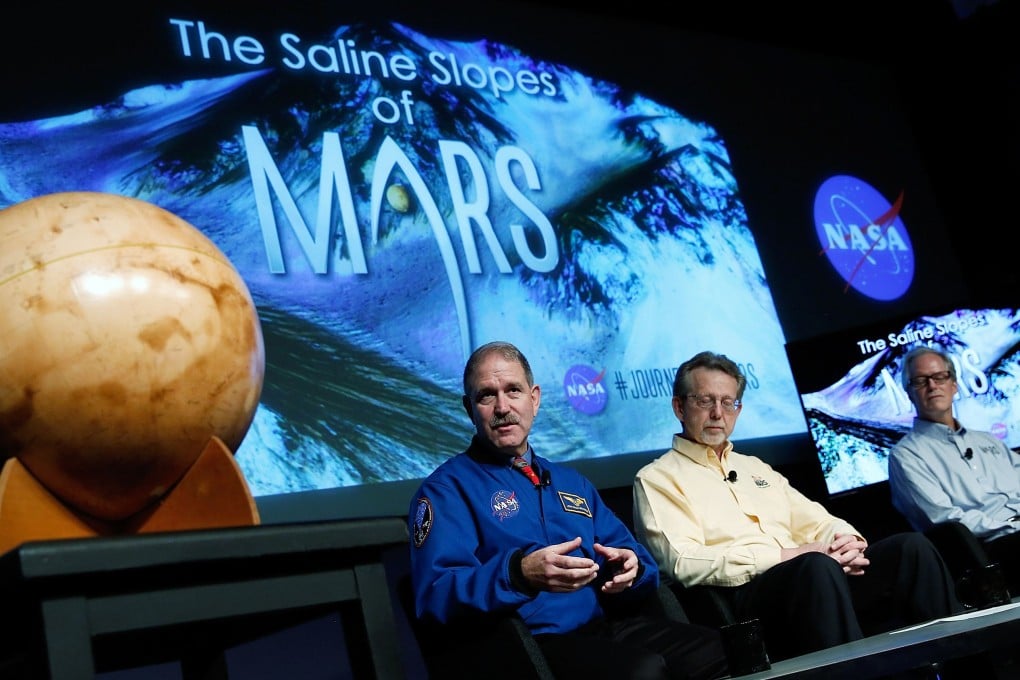Go with the flow: Discovery of water on Mars raises fundamental questions about life, the universe and everything
Paul Stapleton says if the water discovered on Mars does contain life, which is possible, it would have deep implications for science and religion

The enormity of the recent discovery that Mars has liquid water on its surface is difficult to grasp. Until this discovery, scientists could only speculate about the existence of flowing water in our solar system and, for that matter, the rest of the universe.
Although water is a substance we largely take for granted, biologists know it is critically important for sustaining life, or at least life as we know it. And while life on earth seems to come in an infinite number of forms, it is all based on the same 20 amino acids that make up protein using water as its solvent. Scientists have understood for quite some time that the H2O molecule has special properties that make it singularly appropriate for life.
And this is why its discovery on Mars is so exciting. But before we get carried away, the reality is that any life there would probably be visible only through a microscope. In fact, the water recently discovered on Mars is said to run at temperatures as low as minus 23 degrees Celsius . This means it is probably extremely salty.
All of this suggests life itself, together with water, make a loving couple. It also suggests that life, once started, can adapt to extreme conditions
Some scientists suggest that such water would be so brackish it would preclude any form of life. But similar comments were made less than 100 years ago about the Dead Sea, which is eight times saltier than seawater. Then, in the 1930s, an Israeli scientist discovered microbial communities living there. As for the extreme cold, scientists have discovered single-celled algae in Antarctic ice floes. And life can also exist under conditions of tremendous heat and pressure, as proven by extremophile microbes near volcanic vents on ocean floors.

If we do discover that the water on Mars harbours life - and this could happen within the next generation - will it be composed of the same 20 amino acids as the life here on earth?
The answer to such a fundamental and fascinating question could have profound implications not only for science, but also for religion and even philosophy. If we find the same composition, it suggests that there is a very defined key to life, at least in our solar system. But if the life there were to have a different structure - say a different set of amino acids - all bets would be off as to how many ways there are to create life.